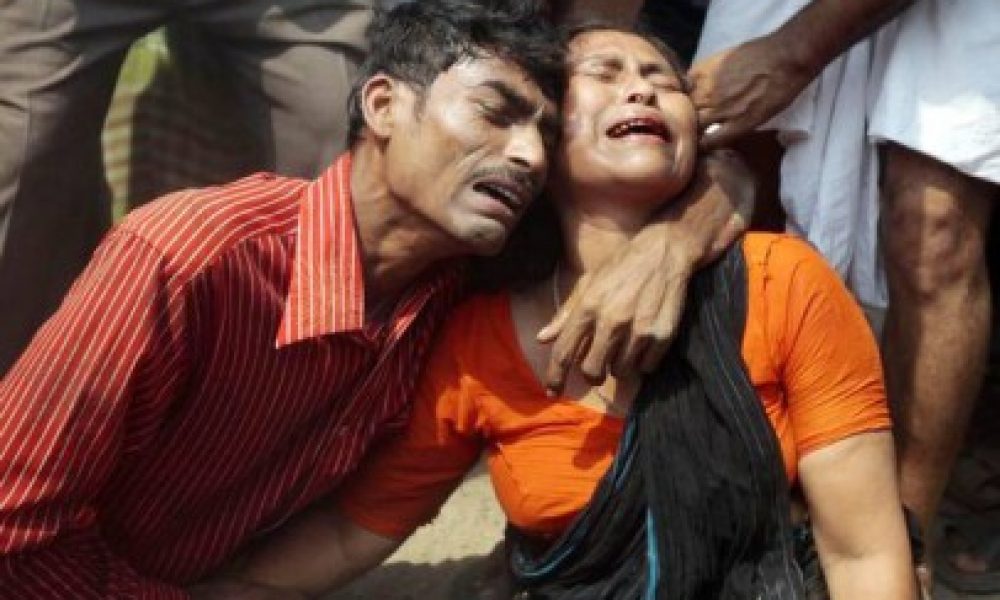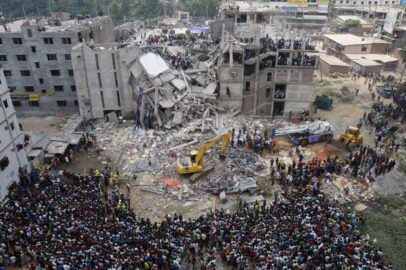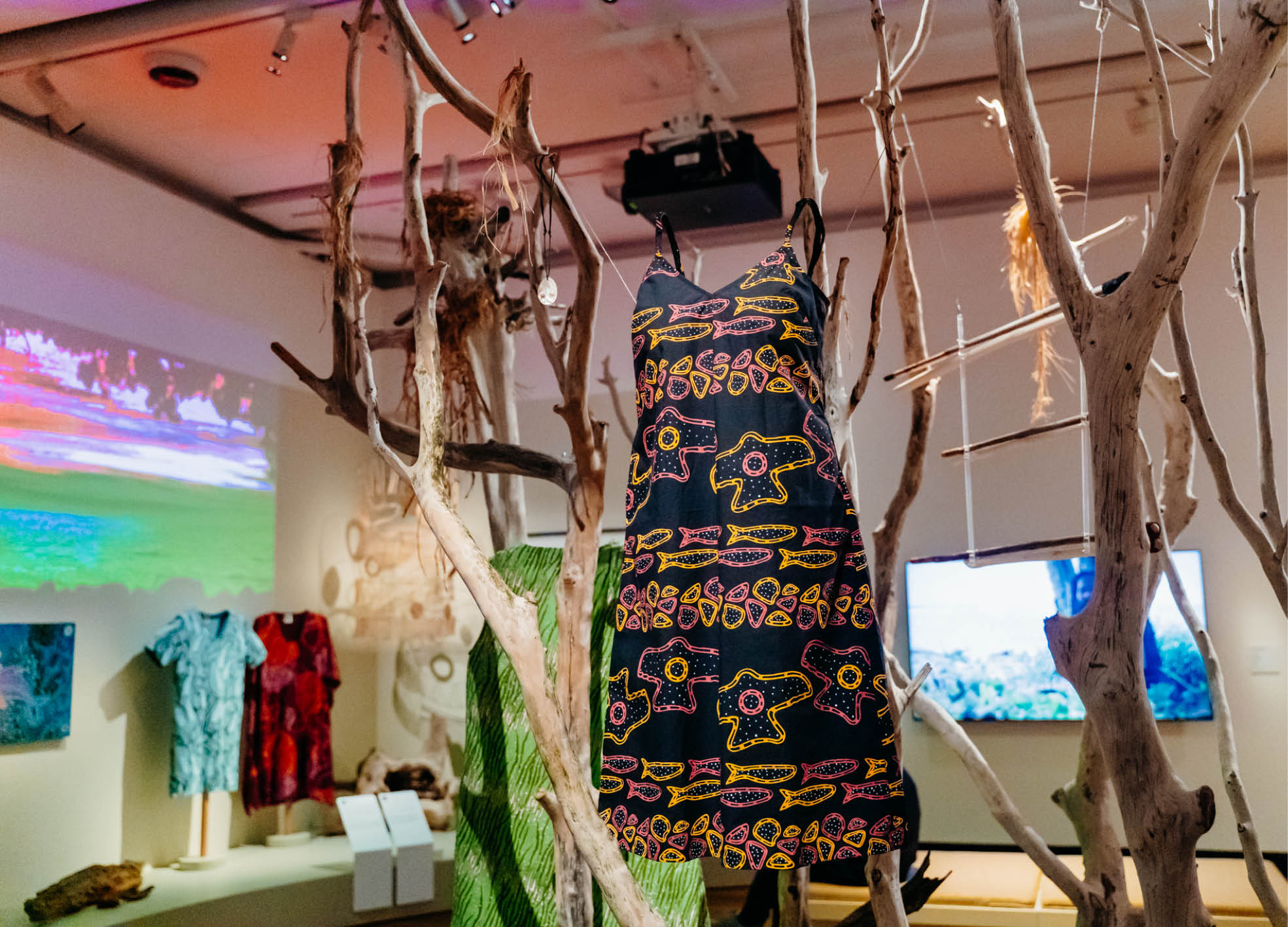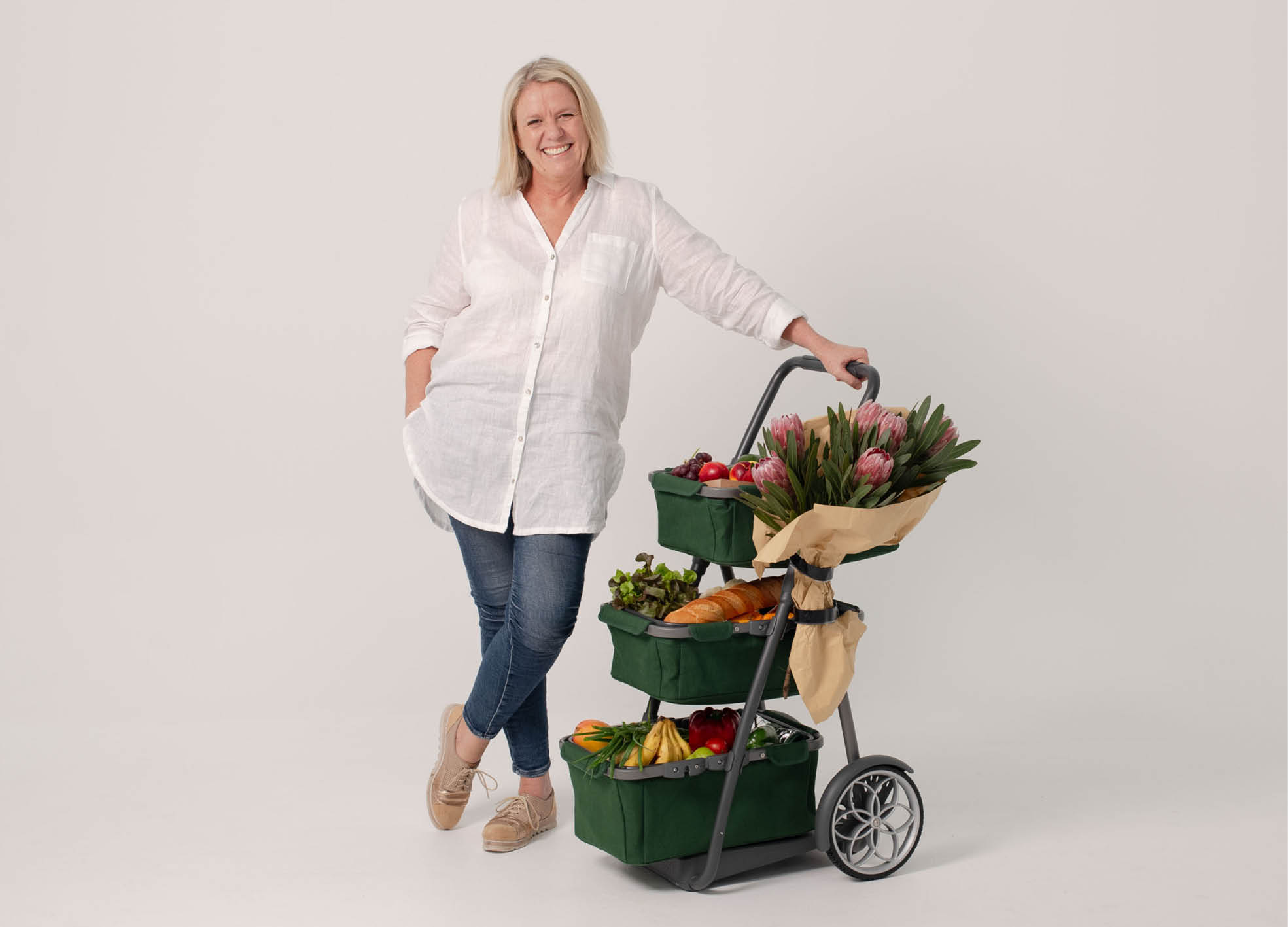Tragedy in Bangladesh

- Words by Peppermint
The fallout from Wednesday’s garment factory collapse in Bangladesh continues, with nearly 1000 people feared dead and many more seriously injured in what is the country’s worst ever industrial accident. The Dhaka-based factory housed production of several mass market clothing brands, including Mango, Walmart, Kik and Primark, with workers ordered to remain on the premises after factory owners received warnings on Tuesday of dangerous cracks in the building’s structure. (In contrast, staff from a bank in the same building were immediately evacuated). As the rescue effort forges on, those on the ground continue to report the sound of screams from victims trapped inside the wreckage; including, perhaps most tragically, children, as the building also housed a creche on its 7th floor.

The incident highlights the true dangers and human cost of fast fashion production – an industry that accounts for 80 per cent of Bangladesh’s exports and employs some three million workers, mostly women, on near or below-living wages. “Bargain-basement [clothing] is automatically leading toward these types of disasters,” John Hilary, executive director at War on Want, told Reuters. He said Western clothing retailers’ desire to remain ultra-competitive in this fast, cheap fashion industry has translated into increasing pressure on foreign suppliers to reduce costs. “If you’ve got that [pressure] then it’s absolutely clear that you’re not going to be able to have the right kind of building regulations, health and safety, fire safety. Those things will become more and more impossible as the cost price goes down.”

Oxfam’s Gareth Price-Jones said companies need to demand change in the culture and conditions of clothing factories in Bangladesh, where profit comes before safety. “The only reason there were workers in that building was because management told them they would be docked pay if they did not go to work” – an option few could take in an industry where already perilously low wages have declined even further in the last 10 years. “Western buyers could be doing much, much more, and they have a moral responsibility to do so.” Consumers too, he said, have the power to “hold brands to account”.

Meanwhile, campaigners are urging companies to sign up to the Bangladesh Fire and Building Safety Agreement (BFBSA) which would require signatories to fit out their suppliers’ premises to full safety standards. “Change will only happen when major brands and retailers say that there is such a risk to their reputations that they will finally take the step of protecting the lives of their workers,” said Scott Nova from the Workers Rights Consortium. “This is not an industry driven by moral considerations but the bottom line.”

We can only hope that the silver lining to this awful tragedy is a new level of awareness and accountability, as the conditions in offshore clothing factories finally get the attention and discussion they deserve. Please share this story with your friends, family and colleagues, and always speak about where your clothing comes from and at what cost. It’s the least we can do to honour the victims of this tragedy whose lives were taken too early and too preventably.
{via Reuters, The ABC, The Independent}
JOIN OUR MAILING LIST
Brighten up your inbox with our not-too-frequent emails featuring Peppermint-related news, events, competitions and more!
explore
More articles
Look, I don’t want to make anyone panic but IT’S DECEMBER!!! If you’re planning to give homemade gifts, you’re going to have to act fast. I’m a big believer that a DIY gift is the best gift of all, because…
Listen, we need to talk about December. Somewhere between the first appearance of gazillions of Mariah Carey memes prepping us for the imminent arrival of…
When you hang a painting on a wall, the story stays put. But when you wear a beautifully made garment that may as well be…
We all do it: fire up the car for a 5-minute drive to pick up groceries, drop off sewing supplies, or run a quick errand…
Hang out with us on Instagram
Sunday serving suggestion ☀️
Gorgeous photos from @JolieFemmeStore - who make sweet garments from vintage bedsheets.
#PeppermintMagazine #SlowSunday #SwitchOff #Unplug #ReadAMagazine

A toast to the old you 🥂
We wholeheartedly love this post from the brilliant @EmilyOnLife:
“2026: Reinvent, burn it down, let it go (whatever it is). Year of the Snake it up. Exercise your boundaries, exercise your body, take one teeny step every day towards a life that feels better to be in.
But don’t you dare shit on your old self while you do it.
Hold yourself with reverence and tenderness and respect, because you got you this far. You did your very best with the information and tools you had at the time. You scraped yourself together, you made it work, you survived what felt impossible to survive: again and again and again.
You are perpetually in the process of becoming, whether you can feel it or not, whether or not you add it to your 2026 to-do list.“

Some very wise words from @Damon.Gameau to take us into 2026 🙌🏼

⭐️ We made it!!! ⭐️
Happy New Year, friends. To those who smashed their goals and achieved their dreams, and to those who are crawling over the finish line hoping to never speak of this year again (and everyone else in between): we made it. However you got here is enough. Be proud.
It’s been a tough year for many of us in small business, so here’s to a better year in 2026. We’re forever grateful for all your support and are jumping for joy to still be here bringing you creativity, kindness and community.
We’re also excited to be leaping into the NY with our special release sewing pattern – the Waratah Wrap Dress!
How great are our fabulous models: @Melt.Stitches, @KatieMakesADress and @Tricky.Pockets - and also our incredible Sewing Manager @Laura_The_Maker! 🙌🏼
Ok 2026: let’s do this. 💪🏼
#PeppermintWaratahWrapDress #PeppermintPatterns #SewingPattern #MeMade #WrapDress #WrapDressPattern

Putting together our annual Stitch Up brings on all the feels! We feel humbled that you’ve chosen to sew Peppermint patterns, we feel inspired by the versions you’ve created and we feel proud of you.
Where to begin?! As always, there has been a plethora of Peppermint patterns flooding our feeds this year, and we wish we could showcase more than just a handful of magnificent makes from you, our clever community. We encourage you to flip through the me-made items in your wardrobe or scroll through your grid and remind yourself of the beauty you’ve created with your own two hands (and maybe a seam ripper and some choice words). Congratulations to all of us for our creative achievements this year!
We’ve put together some (but absolutely not all) of our favourites from 2025 over on our website. We hope it inspires your next make!
🪡 Link in bio 🪡
Pictured: @FrocksAndFrouFrou @MazzlesMakes @KatieMakesADress @_Marueli_ @IUsedToBeACurtain @Nanalevine.Couture @PiperInFullColour @MadeByMeJessieB @SarahMalkawi @Made.By.Little.Mama
#PeppermintPatterns #SewingPatterns #MeMade #MeMadeEveryday

“The ocean is a great equaliser. It doesn’t matter your age, size, background or circumstances – when you’re in the water, you’re stripped back to your essence. I’ve watched women who were terrified of the ocean walk in tentatively, then emerge with tears of joy and new-found confidence.”
For Perth photographer Amanda Battle, the deep blue has brought sisterhood and second chances. Growing up in Shoalwater Marine Park, the ocean was both her playground and sanctuary, and a balm for body and soul during challenging times. Born from her own healing journey, Amanda’s @WomenOfWaterProject, book and documentary showcases a community of women who found belonging and connection in shared experiences in the ocean.
“Every single woman arrived with her own story – grief, trauma, joy, resilience – and every single woman showed up exactly as they were in that moment. Photographing over 100 women in the ocean for the Women of Water book has been the most humbling privilege of my life.”
Discover Amanda’s work and story in ‘Saltwater salve’ in issue 64, at newsagents and stockists now!
#PeppermintMagazine #WomenOfWater #OceanTherapy #DeepBlue #OceanPhotography

















